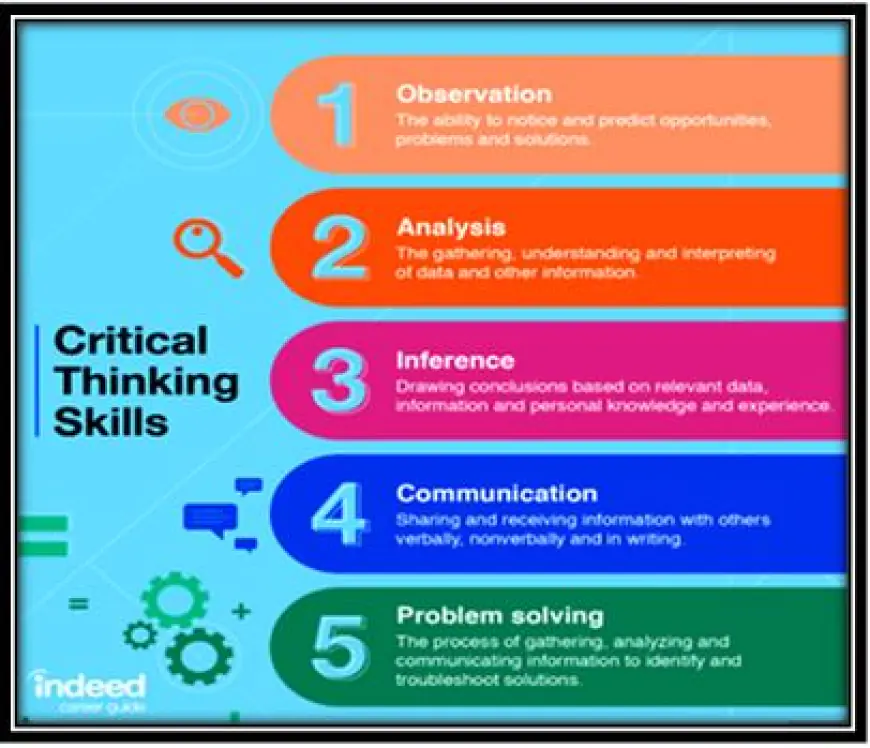How Can Critical Thinking Protect Us from Being Deceived?
Discover the power of critical thinking in protecting yourself from deception. Learn essential strategies to safeguard your mind and decisions today!

Introduction: Understanding the importance of critical thinking
In today's world, where information is constantly bombarding us from every angle, the ability to analyze information and evidence critically has never been more crucial. With the rise of fake news, deceptive advertising, and misinformation campaigns, our capacity to sift through the noise and discern what is true and reliable is paramount. By honing our skills in analyzing information and evidence, we not only protect ourselves from being deceived but also empower ourselves to make well-informed decisions that can shape our lives.
Critical thinking enables us to question the sources of information, evaluate their credibility, and identify any biases or hidden agendas. It prompts us to consider alternative viewpoints, seek out corroborating evidence, and weigh the strengths and weaknesses of different arguments. When we approach information with a critical mindset, we become less susceptible to manipulation and more adept at navigating the complex landscape of competing ideas and narratives.
What is Critical Thinking?
Developing sound reasoning skills is crucial in safeguarding ourselves from deception. By honing our ability to think critically and analyze information, we can effectively filter out misleading or false narratives. One way to strengthen reasoning skills is by actively seeking out diverse perspectives and questioning the validity of the information presented. Additionally, practicing logical reasoning and evaluating evidence can help us discern between reliable sources and misinformation. It's worth noting that developing sound reasoning skills also includes being open-minded and willing to adjust our beliefs based on new evidence, rather than stubbornly clinging to preconceived notions. Ultimately, by cultivating these skills, we empower ourselves to make informed decisions and protect against falling victim to deceptive tactics.

Recognizing Deceptive Tactics
In our daily lives, critical thinking serves as a powerful tool to navigate through the complexities of information bombardment and potential deception. It enables us to question assumptions, evaluate evidence, and discern between fact and fiction. When applied in everyday scenarios, critical thinking empowers individuals to make informed decisions, identify biases, and resist manipulation. Whether it's evaluating a news article, making a purchasing decision, or navigating social interactions, the ability to think critically allows us to protect ourselves from being misled.
For example, when faced with advertisements or political speeches, critical thinking prompts us to scrutinize claims, assess underlying motives, and consider alternative perspectives. By fostering an attitude of healthy skepticism and intellectual curiosity in our everyday encounters -- from conversations with colleagues to consuming media — we can reinforce our defense against misinformation and deceptive tactics. Ultimately, applying critical thinking in our daily lives not only enhances our individual decision-making but also contributes towards creating a more discerning and resilient society.
Analyzing Information and Evidence
In conclusion, the power of critical thinking in deception cannot be understated. By honing our ability to analyze information and question assumptions, we can shield ourselves from falling victim to deceitful tactics. Critical thinking enables us to identify inconsistencies, evaluate evidence, and discern the underlying motives behind deceptive messages.
Furthermore, critical thinking fosters a healthy skepticism that prevents us from blindly accepting information at face value. As we navigate an increasingly complex and interconnected world, the ability to think critically is more important than ever in protecting ourselves from misinformation and manipulation. Embracing critical thinking empowers individuals to make well-informed decisions and safeguard themselves against the pervasive influence of deception in all its forms.
Developing Sound Reasoning Skills
In a world inundated with information and misinformation, the ability to think critically has never been more crucial. From fake news to persuasive advertising, we are constantly bombarded with attempts to deceive and manipulate our thoughts. But what if there was a way to arm ourselves against such deception? This article will explore the powerful role of critical thinking in safeguarding us from falling victim to manipulation and deceit. By delving into the fundamental principles of critical thinking, we will uncover how this essential skill can empower individuals to navigate through the maze of misinformation, make well-informed decisions, and ultimately protect themselves from being duped by cleverly crafted falsehoods. So, buckle up as we embark on a journey to unravel the mysteries of critical thinking and discover its potential as an invaluable shield against deception in today’s complex world.
Applying Critical Thinking in Everyday Life
In a world inundated with information and misinformation, the ability to think critically has never been more crucial. From fake news to clever marketing ploys, deception lurks around every corner, ready to ensnare the unwary mind. In this age of digital manipulation and persuasive rhetoric, honing our critical thinking skills is not just a valuable asset—it's a shield against deceit. Imagine being able to navigate through the labyrinth of deceptive tactics with clarity and confidence, emerging unscathed from the web of half-truths and outright lies. This article delves into the power of critical thinking as a formidable defense mechanism against deception, exploring how it can empower us to question, analyze, and discern the truth amidst a sea of falsehoods. So grab your mental armor as we embark on a journey to uncover how critical thinking can protect us from being deceived in today's complex world.
Conclusion: The power of critical thinking in deception
In a world where misinformation and deceit can spread like wildfire, the ability to think critically is not just a valuable skill – it's a shield against manipulation and deception. Imagine being able to sift through the barrage of news articles, social media posts, and advertisements with clarity and discernment, confidently navigating the sea of information without falling prey to falsehoods or biased narratives. Critical thinking holds the power to elevate us above the noise, arming us with the tools necessary to protect ourselves from being misled or manipulated.
As we delve into the intricate web of modern communication, it becomes increasingly evident that critical thinking is not simply a luxury; it's a necessity for survival in an age inundated with conflicting agendas and hidden biases. By honing our ability to analyze arguments, question assumptions, and evaluate evidence impartially, we equip ourselves with an invaluable defense mechanism against persuasive fallacies and deceptive tactics. This article will explore how developing this crucial skill can empower individuals to navigate an increasingly complex landscape of information while safeguarding themselves from manipulation and deceit.







